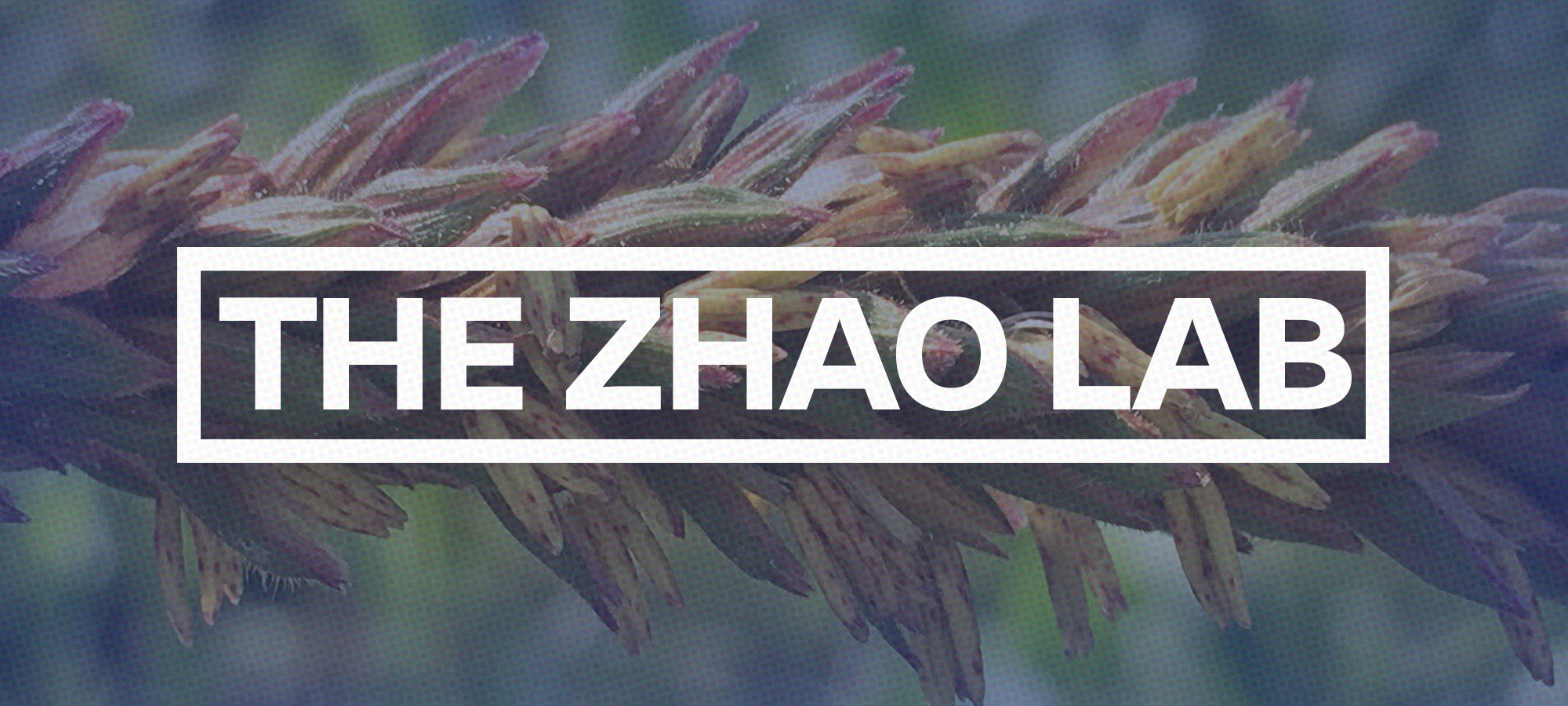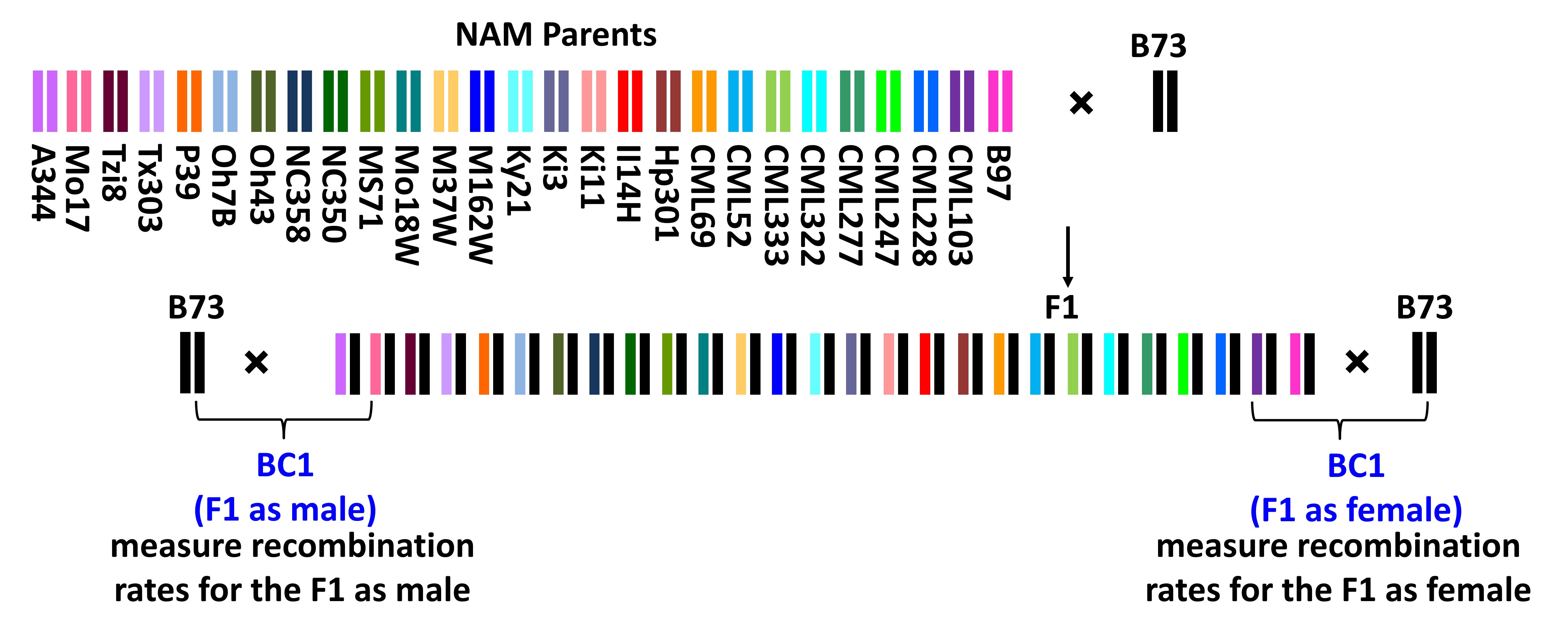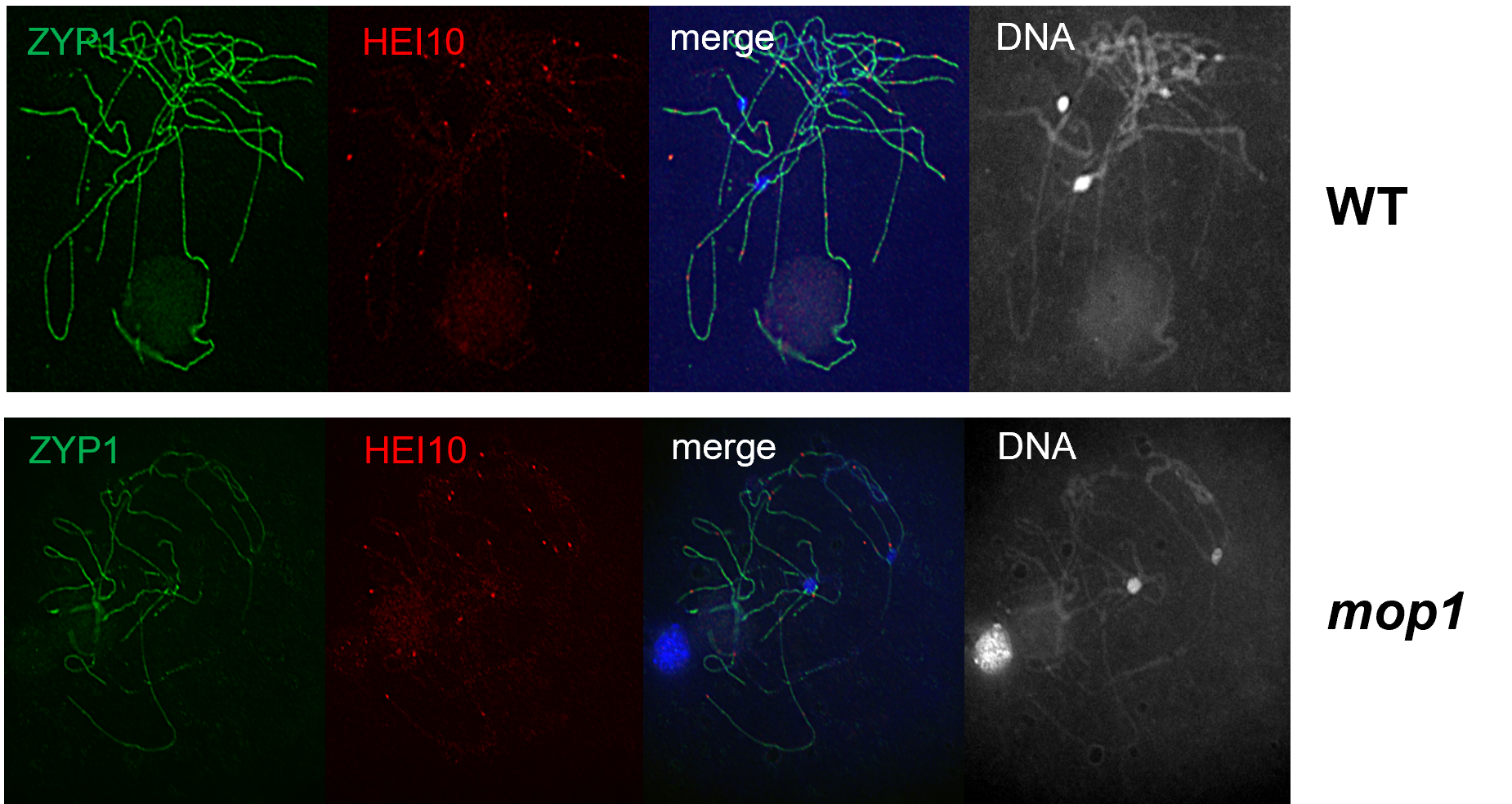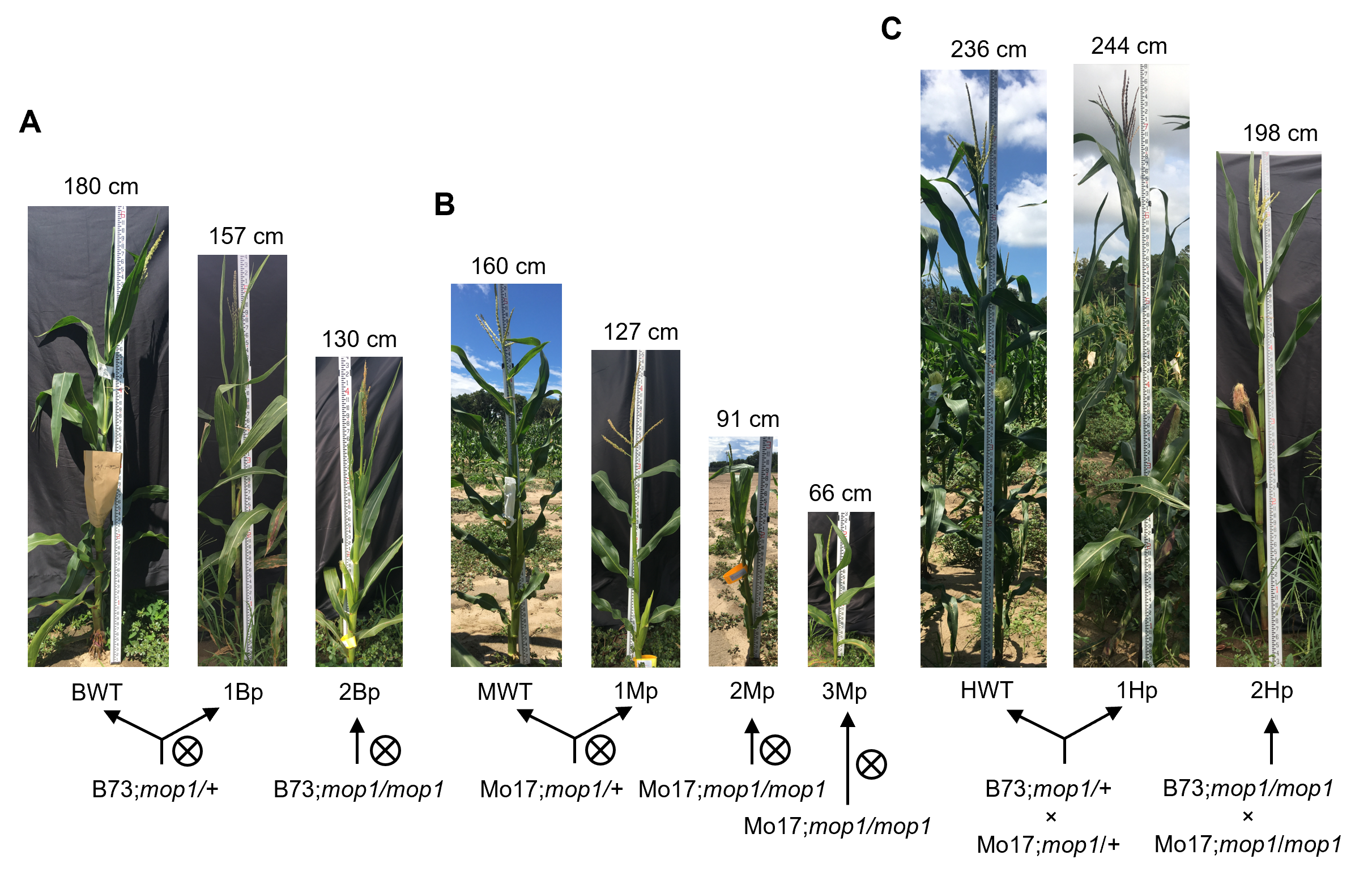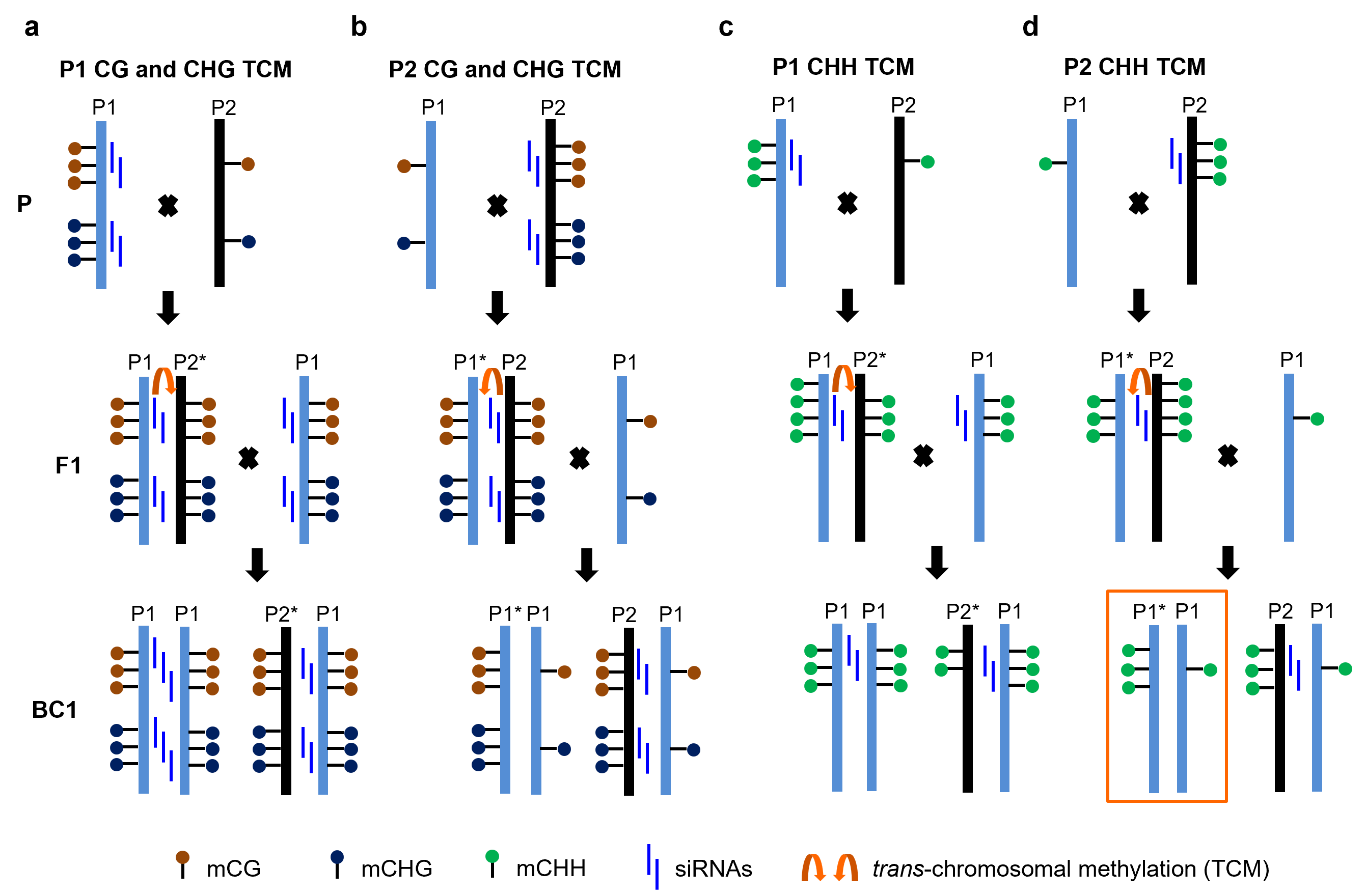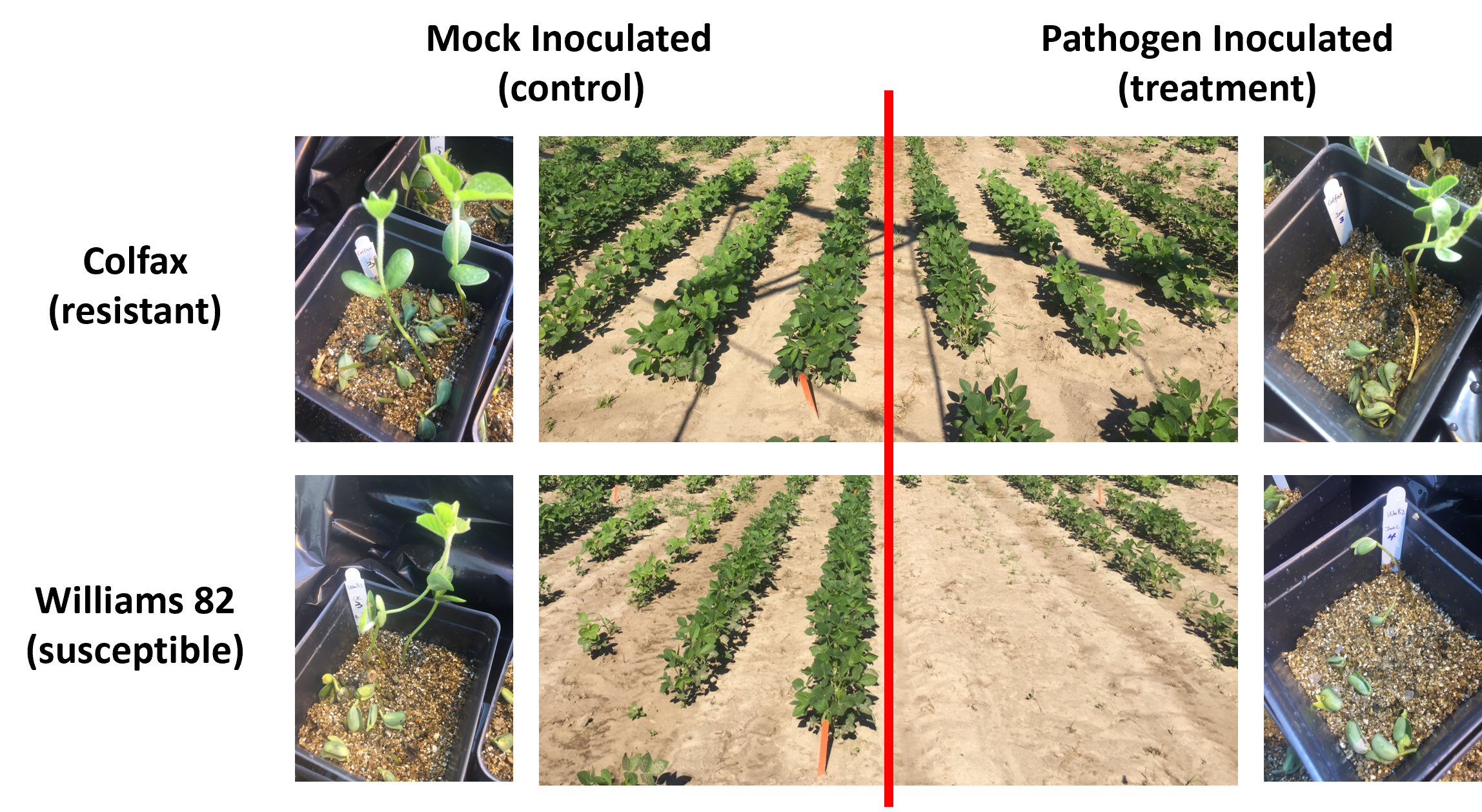Genetics, Genomics, and Bioinformatics
The Zhao Lab
Our research laboratory uses a combination of computational and functional genomic, genetic, and epigenetic approaches to study the mechanisms underlying genome evolution, transposon silencing, and epigenetic regulation of meiotic recombination and plant-microorganism interactions using maize and soybean as model systems.
Comparative genomics and epigenomics in plant genome evolution. We seek to understand the function of transposable elements in plant evolution, the differentiation and functional consequences of duplicated genes, and co-evolution of small RNAs and their targets, including the fates of microRNAs and protein encoding genes, as well as the evolutionary patterns of small interfering RNAs and RNA-directed DNA methylation (RdDM) components.
Genetic and epigenetic regulation of meiotic recombination in maize. We are currently using classical genetics and computational genomics to dissect genetic and epigenetic regulation of meiotic recombination in maize. We have focused on how RdDM pathway mutants affect the rates of meiotic recombination, and how and why sexes differ in meiotic recombination using the parental lines of maize nested association mapping (MAM) populations. We are also extending our maize epigenetic work to soybean to compare the conservation and differentiation of the RdDM pathway in these two important crops.
Genetic and epigenetic regulation of soybean immunity. We are interested in dissecting how epigenetic regulation including small RNA, DNA methylation and histone modification is involved in the interactions between soybean and microorganisms.

